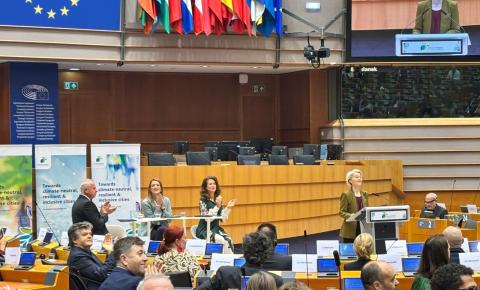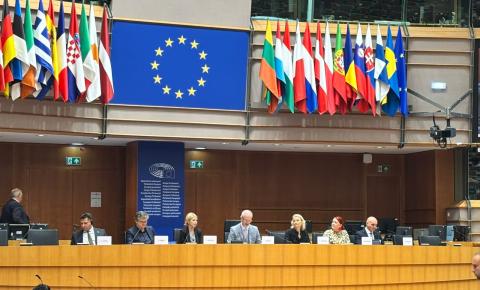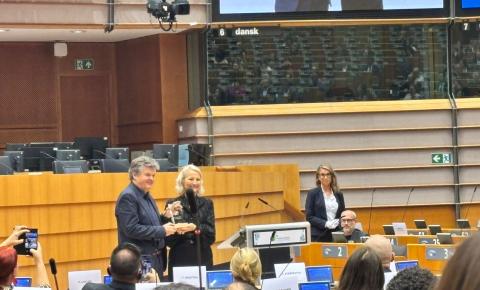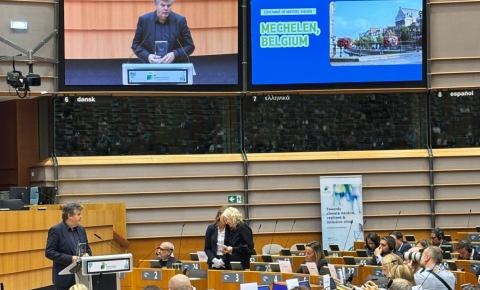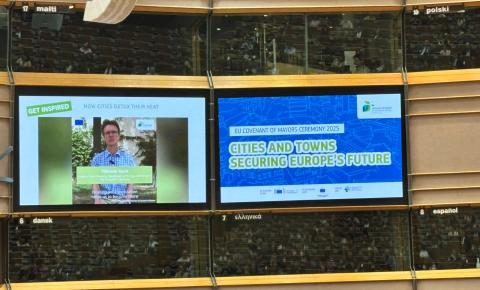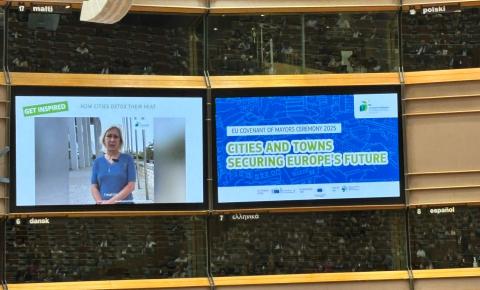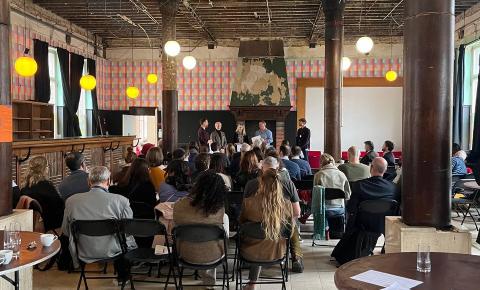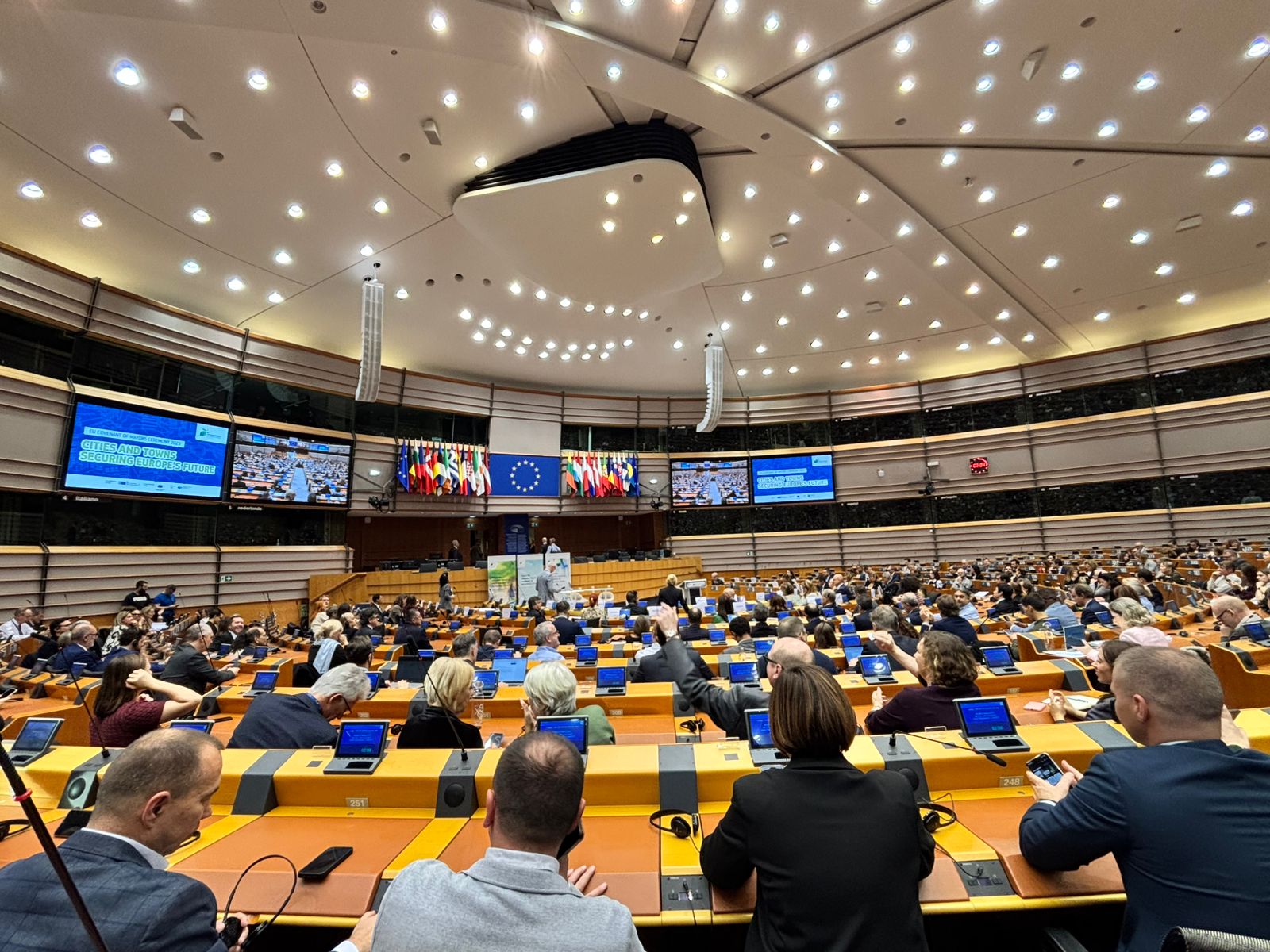
Cities lead the way in building decarbonisation: Mechelen wins at the Covenant of Mayors Awards, and Building Decarbonisation Partnership members showcase local leadership
Mechelen wins Covenant of Mayors Award for heat planning
At the Covenant of Mayors Award Ceremony (October 16), the City of Mechelen, co-coordinator of the Building Decarbonisation Partnership, received an award for its work on heat planning, a recognition of its bold and socially inclusive approach to decarbonising local heating systems. The ceremony brought together high-level speakers including Ursula von der Leyen, President of the European Commission, and Kata Tüttő, President of the European Committee of the Regions, alongside mayors and regional leaders from across Europe. Bart Somers (Mayor of the City of Mechelen) emphasised that political leadership at the city level is crucial, but that true progress depends on broad cooperation:
Decarbonising our buildings and heating systems is a wicked challenge. By creating a local coalition and mobilising resources and ideas from all sectors, cities can truly drive the green transition.
Bart Somers, Mayor of Mechelen
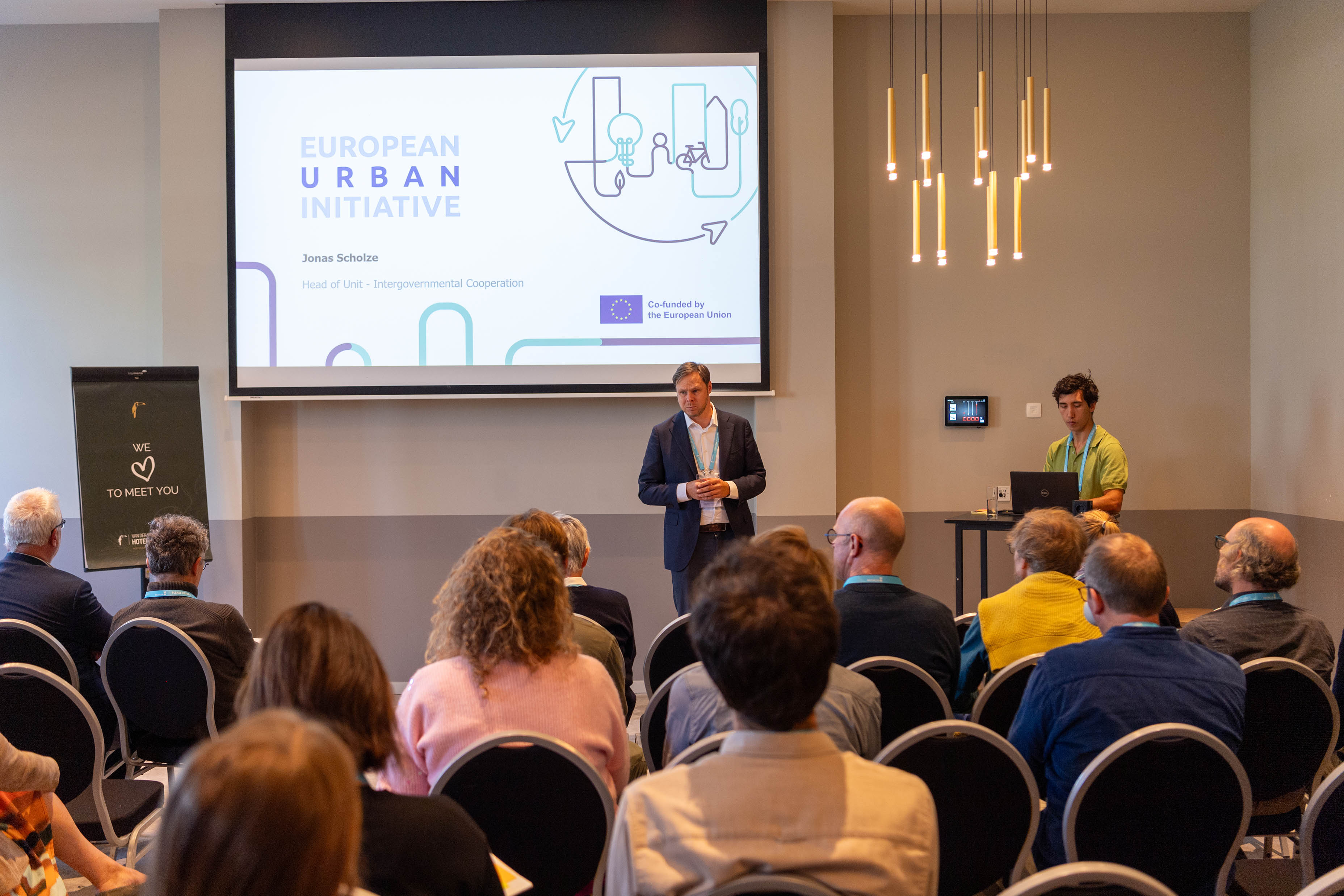
Jonas Scholze (EUI) presenting at the local heat coalition in Mechelen
Mechelen’s municipal heat plan is guided by five core principles, including affordability and tackling energy poverty, and has been developed in close cooperation with local stakeholders through a ‘heat coalition’. This coalition brings together government, business, and civil society to ensure that the transition to clean heat leaves no one behind.
Ighor Van de Vyver, who has been closely involved in shaping the heat plan strategy for the City of Mechelen is also one of the coordinators of the Urban Agenda for the EU Building Decarbonisation Partnership, working across multiple levels of governance to unite cities, Member States, and several European Commission Directorates-General in collaborative policymaking. Local heating and cooling plans are also an important part of the thematic areas of the Partnership which focus on: (1) Strategic planning at the municipal level, (2) Financing Building Decarbonisation, (3) Collaboration for local ecosystems.
EU Peers Summit: One-stop shops empower cities to drive the transition
The EU Peers Summit 2025, organised by Energy Cities with the collaboration Green Building Council España (GBCE), the other coordinator of the Building Decarbonisation Partnership, gathered municipal and regional representatives, one-stop shops (OSS), public authorities and experts for a two-day exchange in Brussels, between October 14 and 15.
Structured around professional workshops, local experience sharing, and a public plenary session titled “How cities and regions are benefitting from one-stop shops!”, the event highlighted how OSS can act as key enablers for energy renovation. Speakers highlighted that one-stop shops simplify access to energy efficiency projects, offering citizens technical, financial, and social advice in one place, which helps to overcome long-standing barriers to building renovation. As the discussions revealed, these structures also stimulate local economic growth and create green jobs, demonstrating that decarbonisation can go hand in hand with social and economic inclusion. The Summit reaffirmed that municipalities play a decisive role in leading energy transition across Europe. With their proximity to citizens, cities are uniquely positioned to develop inclusive, place-based renovation strategies that make climate neutrality a shared and tangible goal.
Integrating the local dimension in the green transition
As part of the European Week for Regions and Cities two other Building Decarbonisation members hosted their events, namely, EUROCITIES and the German Association for Housing, Urban and Spatial Development (DV). In two distinct ways, both events focused on highlighting the importance of place-based approaches and local strategies.
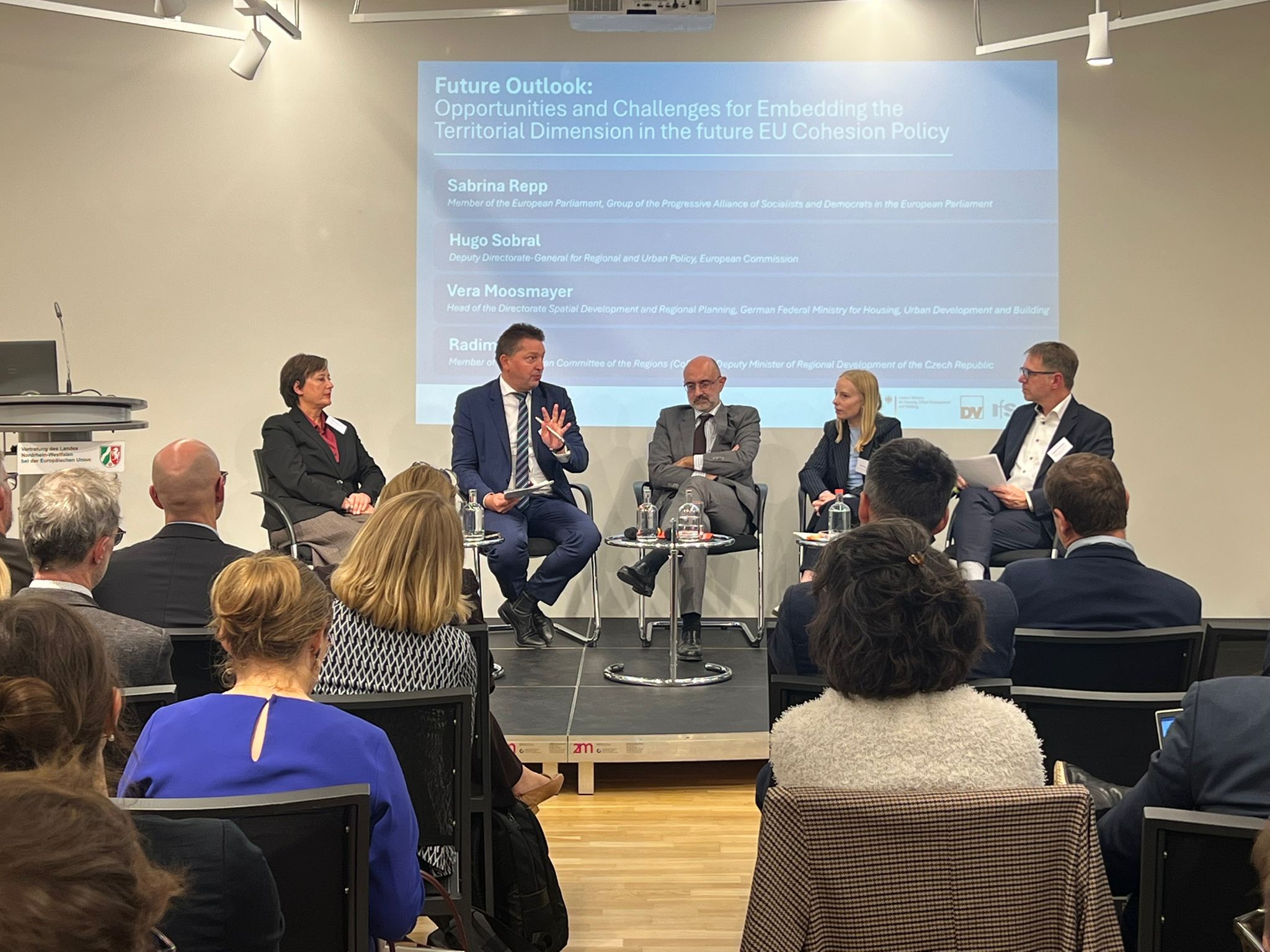
The Conference on the Territorial Dimension in EU Cohesion Policy, hosted by DV, showcased examples from North Rhine-Westphalia (DE), Kuyavian-Pomerania (PL), and Brno (CZ), demonstrating how territorial tools such as Community-Led Local Development (CLLD) and Integrated Territorial Investments (ITI) create leverage across metropolitan areas, cities, small towns, and rural regions. In a high-level panel on embedding the territorial dimension in EU Cohesion Policy, brought strong consensus on key priorities for the upcoming programming period. Specifically, the discussion focused on keeping the territorial dimension firmly embedded, safeguarding place-based action with local strategies and genuine selection and budget authority, strengthening multi-level governance with binding roles for regions, and simplifying procedures for less bureaucracy and more impact.
The Cities Building Tomorrow session, hosted by EUROCITIES on October 15, highlighted the important role of local authorities in implementing the revised Energy Performance of Buildings Directive (EPBD). Speakers called for meaningful city involvement throughout the renovation process, from planning to monitoring, to ensure affordable, high-quality housing and maximise local benefits such as green jobs and energy autonomy. Discussions also focused on the uneven city engagement in Social Climate Plans, urging Member States to establish structured, transparent consultations when drafting National Building Renovation Plans (NBRPs) that align with local strategies and energy spatial planning.
A common vision for climate-neutral cities
Together, the Covenant of Mayors Award and the EU Peers Summit reflected the shared vision of the Building Decarbonisation Partnership: that cities are at the heart of Europe’s path to climate neutrality. Through collaboration, innovation, and people-centred solutions, local governments like Mechelen are proving that the green transition is already happening.
